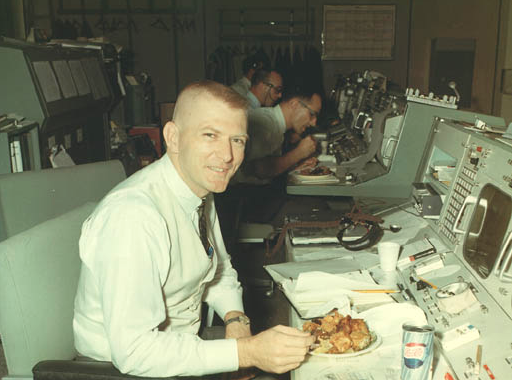
There’s a third way.
Benjamin Franklin famously said that “Failure to prepare is preparing to fail”. It’s worth considering, though, the extent to which people don’t succeed not because they fail to prepare but because they prepare to fail.
Among the unpleasantries of being very wealthy, for example, is the perceived necessity of preparing for marriage and divorce at the same time. It’s difficult to imagine focusing on two different things at once, let alone two diametrically-opposed objectives. I’m no financial advisor so I won’t dispute that a prenup may be a fantastic idea for protecting one’s wealth. It’s hard to argue, though, that it’s similarly effective for a fantastic marriage.
Too often we apply this prenuptial approach to achieving our objectives. Simply stated, much of success depends on where your focus is. A pilot tasked with making an emergency landing focuses not on avoiding bodies of water, power lines and other planes but on just one thing: where they aim to land.
Your hands tend to go where your eyes go and your eyes tend to go where your focus is. Keep that in mind the next time you find yourself starring at men and women working along the shoulder of the highway as you drive past.
Did you know that one of the easiest tricks to perform with a shotgun is to shoot out a candle under the darkness of night? The reason is simple: there’s nothing else to see. (This, incidentally, is why it’s so much harder to stay in your lane when driving past highway workers at night: the klieg lights they work under make it very difficult to keep your focus where it should be: on your lane).
The focus necessary to accomplish difficult things is fostered when the stakes are high: when catching a falling baby one generally doesn’t worry about “style points”. Instead, every physiological fiber in your body blocks out that which does not further the task of catching that damn kid. (Keep this in mind when telling a joke).
Basketball (and sport generally) provides numerous examples of how excellence is fostered when your back is to the wall. How many times have you seen someone get off a quick, game-winning 3-pointer while double-teamed? Conversely, it’s the wide-open player who has “time to think about it” who tends to throw up the cover-your-eyes-awful shot that clangs off the side of the backboard.
It’s difficult to imagine applying such a laser-like focus even on something as important as one’s career, and for that we should be grateful: such people are called workaholics. But from time to time it’s worthwhile to consider the extent to which one is assuming a defensive posture, such as taking on a mountain of debt in acquiring an expensive “back-up plan” in the form of a college degree.
When Frank Costanza’s blood pressure was in danger of going up he’d shout “Serenity now!”. When you possess the self-awareness to realize that you’re focused on avoiding failure rather than achieving your objective, step back and consider creating your own mantra to bring back your focus. Mine is “Eyes on the prize”.
Give it a try and let me know how it goes.
Return to daviDDeeble.com or learn how a head injury which cost me the coordination in my right arm instigated my journey from conventional- to comedy juggler.
 You go to a comedy club to see some comedians you’ve never heard of and who ends up doing a set but Jerry Seinfeld. Seinfeld benefits only little from the set – maybe he’s not getting paid and the short time he spends onstage helps only little to hone his set – but the value he ads to the show and your experience is incalculable.
You go to a comedy club to see some comedians you’ve never heard of and who ends up doing a set but Jerry Seinfeld. Seinfeld benefits only little from the set – maybe he’s not getting paid and the short time he spends onstage helps only little to hone his set – but the value he ads to the show and your experience is incalculable.


